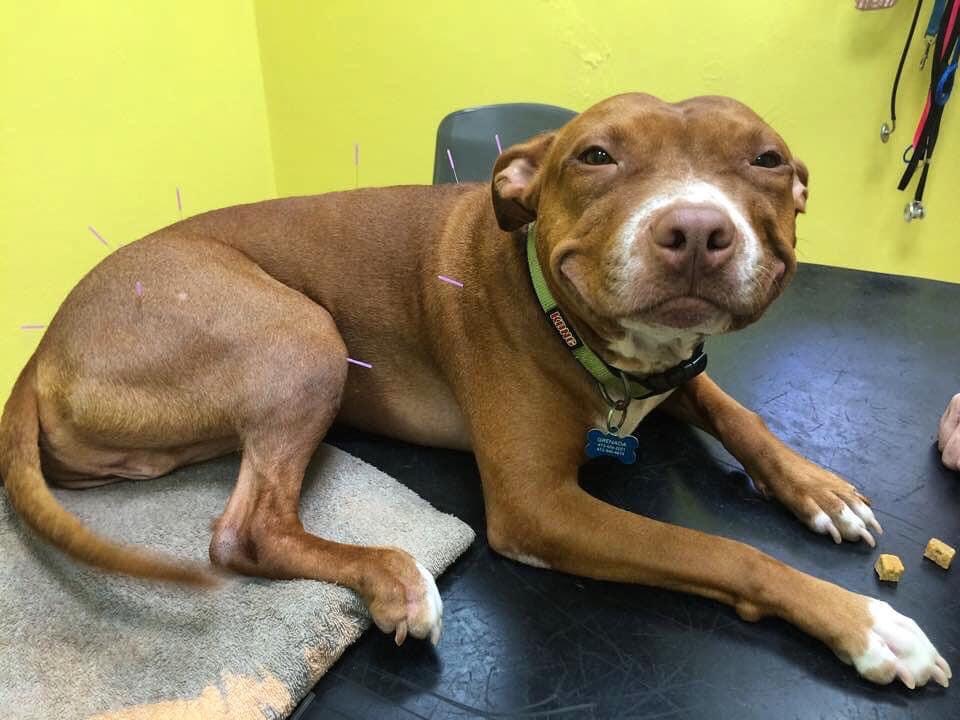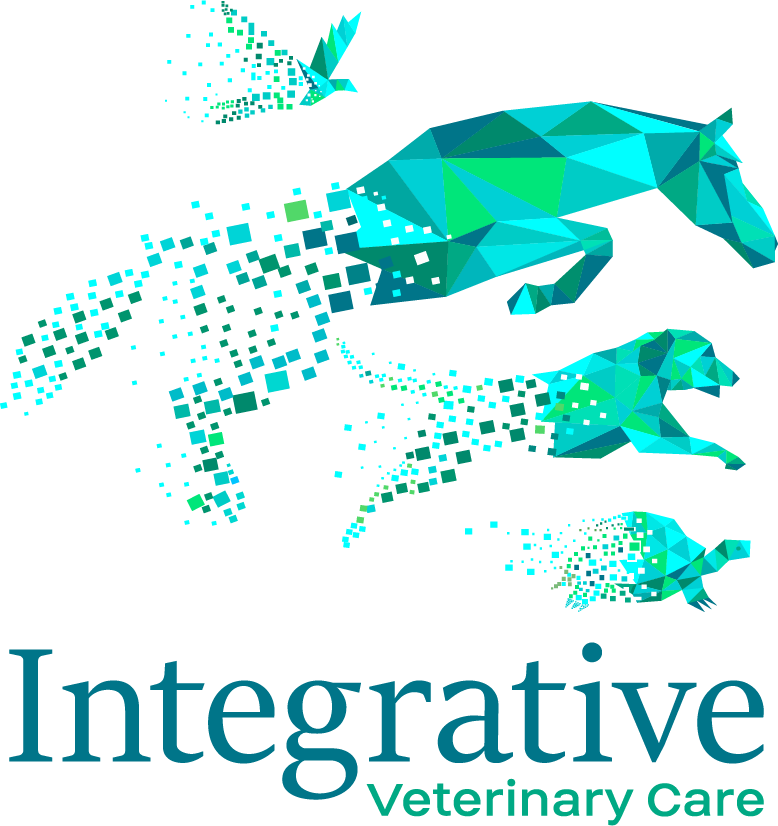Acupuncture is the ancient technique of inserting of needles into specific points on the body to produce a healing response. Each acupuncture point has specific actions when stimulated. This technique has been used in China for thousands of years to treat many ailments, and as preventative medicine. Acupuncture can be used (either alone or in conjunction with Western medicine) to treat a wide variety of conditions in every species of animal.

What is Acupuncture?
Acupuncture is the ancient technique of inserting needles into specific points on the body to produce a healing response. This technique has been used for thousands of years in China to treat many ailments and as preventative medicine. Acupuncture can be used (either alone or in conjunction with Western medicine) to treat a wide variety of conditions in every species of animal.
While acupuncture is popular and well-known as a treatment for musculoskeletal and neurological diseases (such as arthritis pain, disc disease and seizures), it is also highly effective in helping to treat most internal medicine conditions (including heart disease, kidney disease, liver disease, gastrointestinal disease), behavioral issues, and even cancer. Acupuncture can also be used along with conventional therapies to either mitigate side effects or enhance treatment.
How Does It Work?
Traditional Chinese Veterinary Medicine (TCVM) believes that living beings have channels or “meridians” of energy running throughout the body. In order to maintain proper health, the body’s energy must be balanced and continually flowing. Acupuncture is one means of reestablishing balance, and it has been a favored modality for over 4000 years.
In western terms, acupuncture can assist the body to heal itself by affecting certain physiological changes such as stimulating nerves, increasing circulation, relieving muscle spasm, and releasing hormones (such as endorphins and cortisol).
The most common acupuncture technique involves inserting very thin needles into acupuncture points. Laser therapy can also be used to stimulate acupuncture points. Aqua-acupuncture and hemo-acupuncture involve injecting small amounts of liquid such as saline, vitamins, or the patient’s own blood into the acupuncture points. Moxibustion is a special warming technique which involves burning a cigar-like stick of herbs over acupuncture points. Electro-acupuncture involves low-level electricity traveling into the regular acupuncture needles.

What Can It Do?
Acupuncture is indicated for functional problems such as paralysis, noninfectious inflammation (such as allergies), and pain. For small animals and exotic pets, acupuncture is commonly used to treat musculoskeletal problems (such as arthritis or sprains), neurologic issues (seizures, disk disease, or neuropathy), respiratory problems, skin problems (lick granulomas, allergic dermatitis), gastrointestinal problems (diarrhea, vomiting), reproductive issues, and cancers. Acupuncture can also be extremely beneficial for behavioral issues, including anxiety, phobias and aggression.
For horses and other large animals, acupuncture is commonly used to treat musculoskeletal problems (sore backs, kissing spines), neurological problems (EPM, facial paralysis), skin problems (allergic dermatitis), respiratory problems (heaves, thumps, EIPH), gastrointestinal problems (nonsurgical colic), reproductive problems and behavioral issues.
For animal athletes, regular acupuncture treatment can treat minor sports injuries as they occur, and keep muscles and tendons resistant to injury. World-class professional and amateur athletes often use acupuncture as a routine part of their training. If your animals are involved in any athletic endeavor, such as racing, jumping, agility, or showing, acupuncture can help keep them in top physical condition.
How Often Does My Animal Need Acupuncture?
Treatment success varies according to the condition being treated and the number/frequency of acupuncture treatments. A simple acute problem, such as a sprain, may require only one treatment, whereas more severe or chronic ailments may need several treatments. Athletes often benefit from regular sessions during competition and recovery to maintain peak training and performance.

Is It Safe? Does It Hurt?
Acupuncture is one of the safest forms of medical treatment for animals when it is administered by a properly trained veterinarian. Side effects of acupuncture are rare, but they do exist. An animal’s condition may seem worse for up to 48 hours after a treatment. Other animals become lethargic or sleepy for 24 hours. These effects are an indication that some physiological changes are developing, and they are most often followed by an improvement in the animal’s condition.
The insertion of acupuncture needles is virtually painless. The larger needles (necessary for large animals) may cause some discomfort as the needle passes through the skin. Once the needles are in place, there should be no pain. Most animals become very relaxed and may even become sleepy. Acupuncture treatment may cause some sensation, presumed to be those such as tingles, cramps, or numbness which can occur in humans and which may be uncomfortable to some animals. Animals that are not comfortable with needles may benefit from acupressure treatments, laser acupuncture, moxibustion or Tui-Na.
Acupuncture can be effectively combined with most conventional and alternative therapies. The American Veterinary Medical Association considers veterinary acupuncture a valid modality within the practice of veterinary medicine and surgery. Certified Veterinary Acupuncturists (CVA) have the comprehensive training, knowledge and skill to understand the interactions between different forms of treatment and to interpret the patient’s response to therapy. Dr. Zap received her acupuncture certification through the International Veterinary Acupuncture Society (IVAS) in 2019, and has completed advanced acupuncture training at Chi University.
